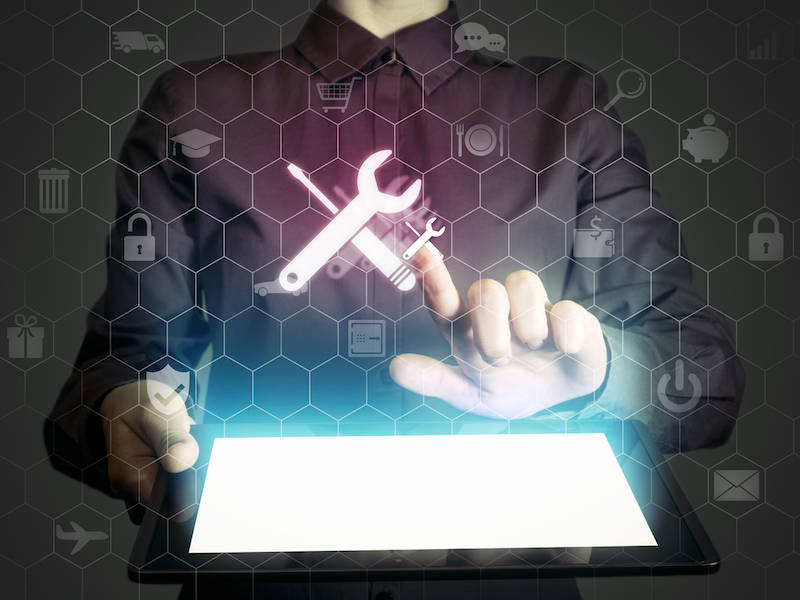Like just about everything worth buying, hearing aids need just the right amount of care, but it’s a worthwhile effort because it extends the life of the device and makes it work better. Taking care of your hearing aid requires a combination of practical knowledge, proper cleaning and careful handling. Educating yourself about the right way to keep them safe and clean will mean you and your hearing aid can live happily together for many years.
About That Earwax
You don’t spend a lot of time talking about it, but everyone has it. Earwax, or cerumen as medical professionals call it, has a distinct purpose in your ears. Earwax protects the skin inside the ear canal from bacteria, insects, and water. It is an important role so, your body makes quite a bit of it, and it can end up on your hearing aids. Chances are if you notice a hearing aid isn’t working quite right, earwax is to blame.
It is a good idea to get into the habit of removing this wax from the surface of the hearing aid on a regular basis. At night before you put it away is a good time. Grab a soft toothbrush or cotton swab and wipe over the surface to clean it. Make sure to get into any crevices, too, and clean any debris off of the receiver and microphone.
Some hearing aids have filters or guards designed to protect the intricate internal technology from earwax. Don’t try to clean these filters; just replace them. Look at the manual that came with the hearing aid to determine if there is an earwax filter or guard. If you are unsure if your device has this feature, give the retailer or manufacturer a call to find out.
Keeping it Dry
Pick a good place to store your hearing aid; one that is dry and secure. This helps prevent water from penetrating the casing and doing damage. Do not touch the device with wet hands and take them out before you get into the shower or pool.
If you live in an area with excess humidity, consider purchasing a dehumidifier designed for hearing aids. As you have probably figured out, this is a device that removes water from the unit. They also make storage cases that help keep hearing aids free from condensation.
If your hearing aid does get moisture in it, carefully wipe it down with a towel. Don’t look for a fancy solution to the problem like a hair dryer or any other heated device because that will likely cause damage.
Keeping It Charged
For most people that will mean changing or charging the batteries regularly. A degrading battery can damage the unit by corroding the delicate circuitry. When you take your hearing aid out at night, open the battery door to keep moisture from building up and leading to corrosion.
When you do change the battery, take a minute to wipe down the contact points before installing the new one. Just rub a dry cotton swab over them to remove any earwax or other debris.
Handling Your Hearing Aid
One of the most important things to understand is how to handle your hearing aid. For one thing, make sure your hands are clean before you touch it. They should be free from lotion and hand sanitizer, too.
Avoid dropping the device onto a hard surface like the kitchen counter. If you do set it down, place it gently and make sure that space is clean first. You might ruin the unit if you put it down right where you spilled your coffee earlier! Don’t place your hearing aid near heat or in direct sunlight. They are sensitive to high temperatures.
Avoid leaving your hearing aid someplace that your dog can get to it. Some hearing aids continue to make a sound when out of your ear that you can’t hear but the dog can. Your best friend might eat the hearing aid to shut it up, and that’s bad for both you and the dog.
Get Professional Help When You Need It
If for some reason your hearing aid needs repair, go to a certified retailer for help. They have the training to work on this unique technology. They also have tools that allow them to test each element and quickly locate the problem and the proper replacement parts. Frankensteining your hearing aid with parts from other units rarely turns out well.
You will need to schedule regular professional cleaning for your hearing aid if you want it to last. A repair technician will clean it inside and out and make adjustments as needed to ensure you are getting the most from it. This is a good time to ask any questions that you might have about caring for your hearing aid, as well.
You put your hard earned money into getting a hearing aid, why not take the steps necessary to keep it working at it’s best for as long as possible. A little careful consideration and care are all it takes to extend the life of your hearing aid.

